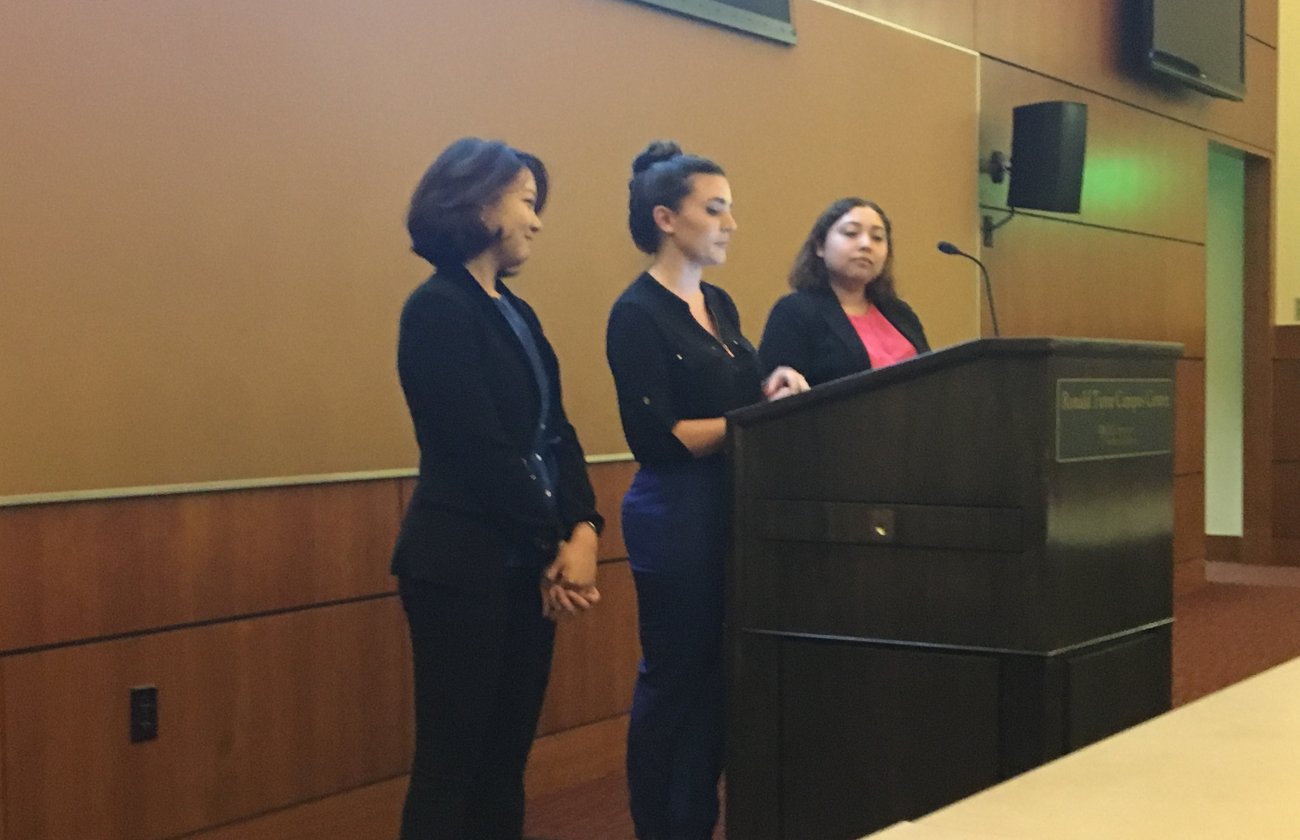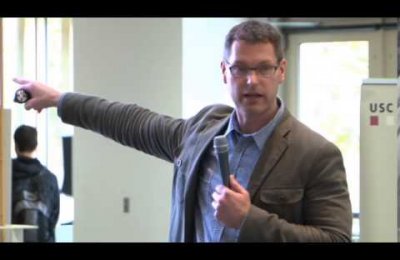The Henry Luce Foundation has awarded journalism professor Diane Winston a two-year $395,000 grant to support multiple initiatives, including stipends for professional journalists reporting on religion and international relations, and M.A. classes and campus lectures on the same subjects.
"The plan is to set up a fellowship program and invite freelancers as well as reporters who work in online, broadcast and print to submit proposals for stories that they could not otherwise cover because they lack financial support," said Winston, who holds the Knight Chair in Media and Religion.
The grant for "Religion on the Move: Crossing Borders, Setting Boundaries" also will help support a graduate reporting class on religion and international relations and a year-long interdisciplinary seminar on religions on the move. And, it will help pay for students in her graduate journalism seminar to travel to the Middle East next year. This spring, her Specialized Reporting 585: Religion, Politics and Gender class visited Jerusalem, Ramallah and Tel Aviv. Students met with activists, journalists and religious and political leaders, and toured settlements, refugee camps and universities. Before the Luce Foundation grant was announced, it was unclear how travel for next year's class would be funded.
"Even though the bulk of the grant is supporting professional work, the students are important, too. They are our future, and the experience of immersion journalism stretches their intellectual framework and deepens their professional capabilities," she said. "They not only learn to report on religion and politics, but they also tell these stories across multiple media platforms and then disseminate them."
Winston said she first applied for the grant came because she wanted to show that religion isn’t static.
"Religion moves across time and space," she said. "It's a variable in human politics and culture that often looks very different on the ground from what comes across in religious texts or academic tomes. As journalists, we are interested in lived religion, and how it affects individuals and communities on a local level — as well as how that resonates in national and international politics."
She said she is thrilled to have the opportunity to help create and disseminate exemplary coverage of religion and international relations.
"I have no doubts that the future of journalism is strong, but given cutbacks in foreign bureaus and specialty beats, it's difficult to know what the content will look like," she said. "It's very gratifying to have solid financial support for the kind of informed, international reporting that is crucial for citizens in the 21st century."
About the Henry Luce Foundation:
The Henry Luce Foundation was established in 1936 by Henry R. Luce, the co-founder and editor-in-chief of Time Inc., to honor his parents who were missionary educators in China. The Foundation builds upon the vision and values of four generations of the Luce family: broadening knowledge and encouraging the highest standards of service and leadership. A not-for-profit corporation, the Luce Foundation operates under the laws of the State of New York and aims to exemplify the best practices of responsible, effective philanthropy.
The Henry Luce Foundation seeks to bring important ideas to the center of American life, strengthen international understanding, and foster innovation and leadership in academic, policy, religious and art communities.
Related links:
Winston's class visits Israel and West Bank
Student work from Specialized Reporting 585: "The Israel-Palestine Project"








